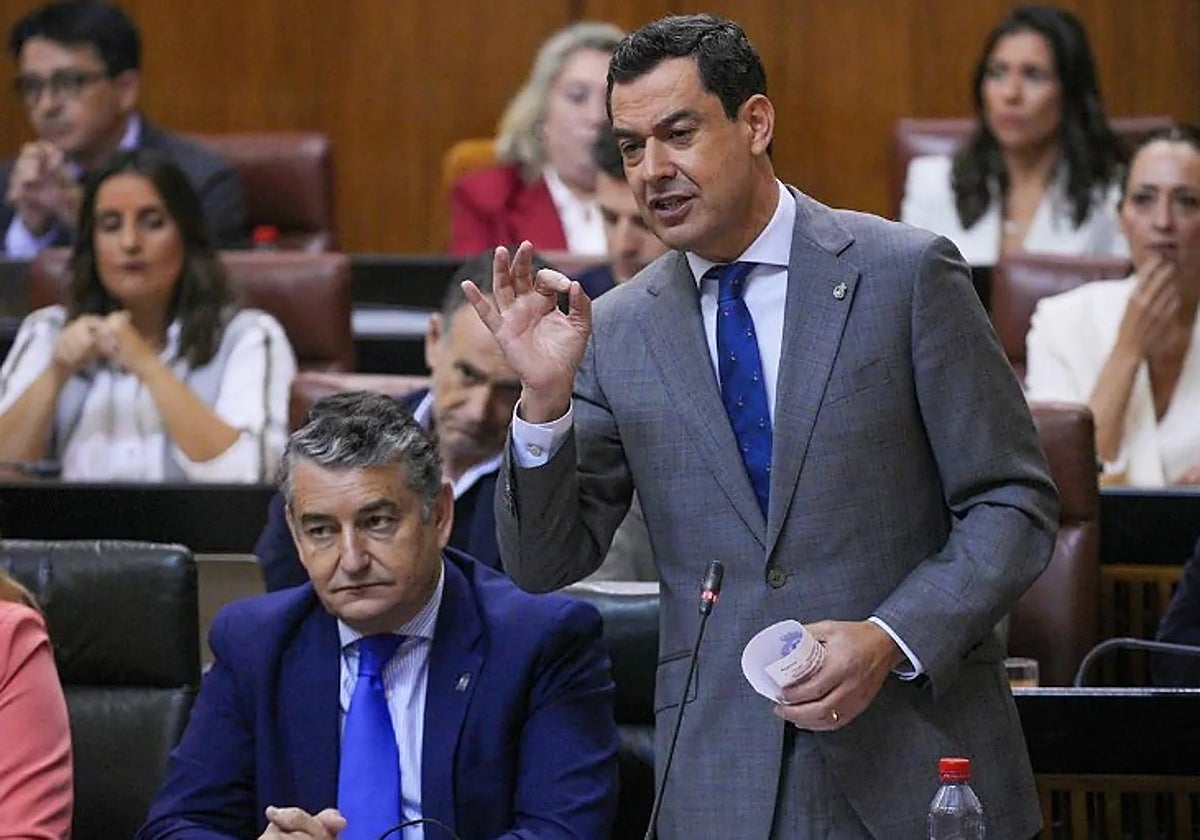Junta green-lights portable desalination plants for Marbella and La Axarquía
The president of the Andalusian government announced works in the region’s ports to bring in up to 100,000 cubic metres of water in boats
Ignacio Lillo and Héctor Barbotta
Malaga and Seville
Wednesday, 29 November 2023, 20:34
President of the Junta de Andalucía Juanma Moreno announced this Wednesday at the regional parliament in Seville that his government is considering for the first time the installation of portable desalination plants, which will initially be located in Marbella and in the Axarquía region.
This measure is part of the region's fourth drought decree, which will be approved at the beginning of next year. In addition, a second initiative will involve the construction in Andalusian ports (presumably to include Malaga) of "connection intakes with the nearest drinking water treatment stations, to be able to bring ships loaded with up to 100,000 cubic metres of water, in case the situation requires it".
The president also announced that next Tuesday's regional cabinet meeting will approve "a new strategy" against water scarcity, with short-term measures "aimed at supplying the population in an extreme situation". In addition to the desalination plants, the measures will include the use of recycled water; the reactivation of wells and boreholes in disuse; and the installation of a floating intake in La Viñuela to extract the scarce water that remains. "The drought and health problems are keeping me awake at night," Juanma Moreno said.
Also announced was an investment of eight million euros to support universities, companies and research centres to develop R&D projects to combat the drought. "We are in an emergency situation that requires extraordinary measures," Moreno added, while appealing for unity in calling on the EU and the government to recognise Andalucía's "unique water situation" so that European funds can be used for supply works.
The proposal announced today is directly linked to what has already been called the 'Estepona solution' to the drought: the construction of a network of small municipal desalination plants that could be in production in a few months. The provincial council has already expressed its support for this option, which is also being considered by other coastal town councils.
The installation of self-sufficient desalination plants, powered by photovoltaic panels, is an idea led in Malaga province by the Mayor of Estepona, José María García Urbano, and which has the advice of the Andalusian Institute of Domotics and Energy Efficiency of the University of Malaga (UMA).
These are small plants, which fit in several shipping containers, and are promoted by Spanish companies such as SETA PHT. These plants are modular, and can be started up in phases and expanded, like a 'turnkey' desalination plant. Furthermore, they are fully automated and monitored to follow the water treatment process and control all quality parameters.
The Junta's explicit backing will enable the lengthy procedures for obtaining environmental permits for seawater intake and, crucially, for brine disposal, to be overcome in the shortest possible time. This last potential pollution problem can be solved by reusing the raw materials obtained after dewatering, which have numerous uses in the chemical and energy industries.
President of the Malaga provincial authority (Diputación) and mayor of Rincón de la Victoria Francisco Salado has contacted García Urbano to inquire about this system. "According to what he has explained to me, it is cheap, fast and modular, so it can be expanded according to the needs of the centre where it is installed, which could be a municipality or several," he said.
"If it is technically feasible and quick, we have to analyse it and take it into account when it comes to providing the most immediate solution for the Costa del Sol, because what we don't have is time, and the money can be found," Salado said. "The most interesting thing is that construction times are much shorter, as long as the authorities speed up the environmental procedures.
"We must put these analyses on the table and coordinate how many would be necessary for the Costa del Sol and implement the ideal sites, coordinated with the regional ministry (of agriculture, fisheries, water and rural development), which has funds for this, and start as soon as possible to request administrative authorisations and construction." Salado said the provincial council was committed to a speedy processing procedure and would provide financial support.
"If this is the most technically feasible and quickest solution, go ahead, because we cannot waste time; we are going to have difficulties with a lack of water for years, and we have to be prepared for episodes of this type," Salado said.
The head of the provincial council added that "we have to coordinate, it is not a matter of each municipality putting a desalination plant in its own territory, because the excess water also has to be added to the water network".
The planned Estepona plant will have a surplus to be injected into the general water network after covering all the town’s needs.
